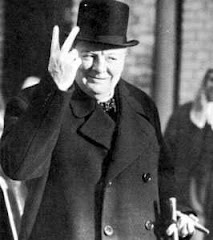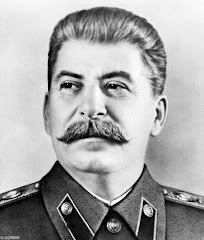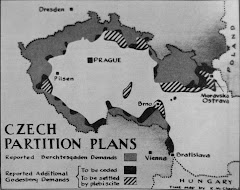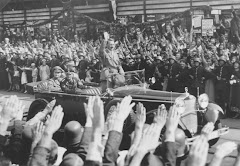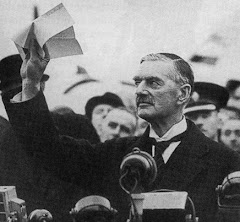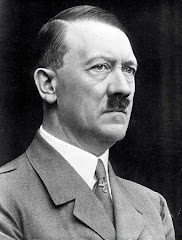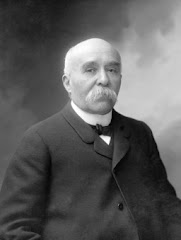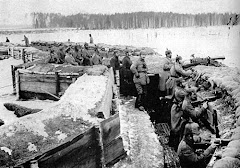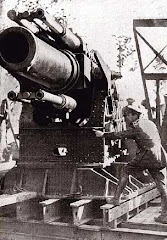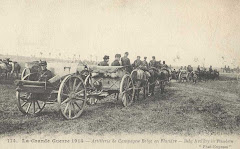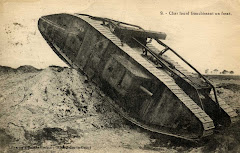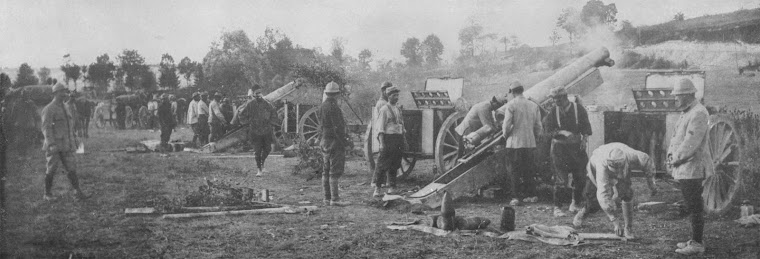Friday, December 6, 2013
Posting #10- Europe in Ruins
This is a picture of Gutte (goodness) looking down upon the city of Dresden (a centre of culture and art, considered a 'Florence on the Elbe') after the area bombing from the Allies which killed as many as 25,000 in one day.
One of the most obvious consequences of the Second World War was that Europe lay in Ruins. The material damage caused by the war was immense. Parts of the Soviet Union had been fought over four times. Warsaw was about three-quarters destroyed, and most of its people killed or dispersed. Germany had been heavily bombed and then fought over; Berlin was a scene of utter devastation. Casualties across the continent had been enormous; even greater than those which had been thought unbearable in the Great War of 1914-1918. War- related deaths in Germany were estimated at 6, 500,000, with another 374,000 in Austria, which was part of Germany for the whole of the war. Among Germany’s allies, Romania suffered some 500,000 dead and Hungary 430,000 - a high proportion of their populations. Among the victors, a commonly used figure for Soviet war dead is 20,000,000, though other estimates go as high as 25,000,000-27,000,000. Polish losses have been put at 4, 123,000, but were almost certainly higher. French losses were approximately 600,000, and those of the United Kingdom 350,000. The war deaths for the whole continent may be computed at a grievous total of something in and around 36,000,000.
At the end of the war Europe was in a state of economic dislocation and decay. Industrial production across most of the continent was low, and in some places non-existent. Transport was often at a standstill. Agricultural production could not feed the populations- food rations were low, and the northern Netherlands suffered severe famine in the winter of 1944-45. The end of the war brought a movement of peoples such as had not been seen in European history for fifteen hundred years. Between 10 and 12 million Germans (perhaps more) either fled or were driven from territories where they had lived for generations, so that east of the Oder-Neisse Line (West Poland/East Germany) and in the reconstituted Czechoslovakia only tiny German populations remained. Refugees, survivors of the death camps, slave labourers from the German war economy, and released prisoners of war wandered across lands which were sometimes almost empty of settled populations.
In the centre of this ruined continent the soldiers of the United States and the Soviet Union met. The fate of Europe was to be in their hands for a longer time than anyone could then foresee. Meanwhile, the vacuum left by the defeat and destruction of Germany had to be filled, and much would depend on how this was done. Before we move on to the long-term consequences of the war it is necessary to discuss the origins of the war, who was responsible and why things happened the way that they did. There have been revisionist and orthodox views on this subject published. Below are the major viewpoints from A.J.P Taylor’s classic book entitled The Origins of the Second World War.
His book was published in 1961, was immediately dubbed controversial, he was immediately considered a dissenter as his viewpoints of the war and Hitler seemed unbelievable. He claimed that Hitler was not an evil monster who moulded events to fit his master plan, but was a man of ‘improvisation’, ‘opportunism’ and ‘the spur of the moment bright idea’- an ordinary German statesman whose foreign policy differed little from that of earlier German governments. Taylor put forward and equally controversial view of appeasement, which he saw as being a logical and realistic assessment of the failings of the past, and as being a genuine attempt to solve them. What brought war was not appeasement, but the mistakes that Chamberlain made when he decided to abandon the policy. In Taylor’s view, war broke out not because of Hitler’s design, but because of Chamberlain’s blunders. Hitler’s foreign policy succeeded for a while, because of his ability to seize opportunities and profit from the mistakes of his opponents. These controversial views set the debate on the origins of the Second World War alight, and opened the way to a broader and less emotionally charged debate.
Research and find what percentage of the populations were killed during the second world war. Using the numbers that were given to you in the first paragraph, find population numbers pre-1939 and compile percentages. i.e war related deaths/population number pre-1939 x 100= %. Which two countries suffered the most losses as a proportion relative to their populations? Why would the estimates initially given regarding war related deaths in the Soviet Union and Poland be inaccurate as they were almost certainly higher? Why do you think that 10-12 million ethnic Germans would be in many cases forced to leave their homes in eastern Europe to forge a new life in a destroyed country such as Germany? Why were A.J.P Taylor's views considered controversial? Do you agree with him, why? Would the viewpoint outlined in his famous book be considered orthodox (traditional viewpoint) or revisionist (breaking away from mainstream/traditional) viewpoints? Support your answer. Why do you think Taylor labels Hitler as an ordinary/traditional German statesman? Do you agree?
This posting is now open and will close at 11pm on December 20th. Any student who is not included in posting #1 or 2 will be doing this posting.
There has been lack of participation on this posting, as a result the deadline will be extended until December 31st.
Posting #9-The Warsaw Uprising
At the Tehran Conference in 1943 the ‘Big Three’ met to discuss Europe’s post war future. At this meeting Stalin stubbornly reiterated his intention to retain Russia’s territorial acquisitions of 1939-41 (under the Nazi-Soviet Pact) in Eastern Europe. The two western leaders (Roosevelt and Churchill) grudgingly gave way, on the condition that Poland’s territorial losses in the east to Russia would be compensated by the annexation of German territory in the west. No one thought to propose a plebiscite like the League of Nations did in the Saar, to consult the Poles earmarked for inclusion into the Soviet Union or the Germans to be incorporated in the reconstituted Polish state as it ‘moved west.’
The long simmering dispute over the political future of Poland became the major bone of contention between the western and eastern members of the Grand Alliance at Yalta. In April 1943 Stalin had abruptly withdrawn diplomatic recognition of the pro-Western Polish government in exile headquartered in London when it appeared to give credence to Nazi accusations that Soviet military forces in Poland massacred ten thousand Polish officers during the period of Soviet cooperation with Germany. Shortly thereafter Stalin gave his official blessing to a rival group of Polish exiles in Russia that disputed the London Poles claim to political legitimacy (right to form a government when the war ended). On July 23 1944, a pro-soviet Polish Committee of National Liberation was established in the Polish city of Lublin after its capture by the Red Army. On August 1st, in response to an appeal from the London Polish group, the 46, 000 members of the Warsaw underground rose against the German occupation army and were joined by most of the city’s civilian population. At the time of the Warsaw uprising the Red Army had smashed through the German defenses to within 10km of the city while radio Moscow broadcast messages of support for the insurrection. But the Soviet forces abruptly halted their advance and stood by while the German Army of occupation brutally crushed the uprising by the end of September. Churchill’s appeal to Stalin for permission for Anglo-American planes based in Italy to land on Soviet airfields after bomb attacks and parachute drops in support of the uprising fell on deaf ears in the Kremlin (the Soviet Government Centre). The consequent death of thousands of Polish partisans wiped out the impressive political and military organization that the London Poles had succeeded in establishing in the occupied country, thereby paving the way for the pro-Soviet rival group that accompanied the advancing Red Army. In January 1945, with Soviet military forces in occupation of the entire prewar territory of Poland, the Kremlin installed the pro-Russian Polish faction in Warsaw and gave it formal diplomatic recognition.
Provide an assessment on the treatment of Eastern European countries before and during the Second World War. Do you feel the treament of Poland in 1939 and 1944 by Western Democracies and Soviet Communism was fair? Does the term 'self determination' apply to the way Stalin was allowed to deal with Poland? Sitzkrieg or a 'sitting war' has been used to describe the attitude of the major powers towards Poland in 1939 and 1944, explain. There is an abundant source of information regarding this topic online and in the Barrie Public Library. Do some research and see what you can find!
This blog posting is now open and will close on December 20th at 11pm
There has been lack of participation on this posting, as a result the deadline will be extended until December 31st.
The following students are included in this posting: Hailey Adam, Daniel Allen, Delaney Benoit, Chelsey Boutin, Megan Broe, Natasha DePass, Lexi Dimovski,
Posting #8-The Role of the Soviet Union in the Outbreak of WWII
In April 1939 Churchill said the guarantee system did not go far enough, and urged Chamberlain to seek an alliance with the Soviet Union. The vast majority of British and French public opinion supported this idea. But, Chamberlain, a lifelong anti-communist, had profound misgivings about concluding an Anglo-Soviet alliance. In the end, the weight of British opinion forced him to make a half-hearted attempt to gain an Anglo Soviet agreement. Chamberlain believed an alliance with the Soviet Union would arouse the suspicion of Poland and aggravate the hostility of Hitler. It was the gravity of the international situation, and the strength of public opinion which forced him to change course. In June 1939, a public opinion poll showed 84% of British people were in favour of an Anglo-Soviet Alliance. In these circumstances, Chamberlain, very reluctantly and with little real enthusiasm, agreed to open negotiations with the Soviet Union in the summer of 1939. Sir Anthony Eden offered to lead the negotiations but Chamberlain ignored the request. The diplomatic talks were conducted by Sir William Strang, a low ranking foreign office official and proved very slow and complex. The British military mission to the Soviet Union was headed by the virtually unknown Admiral Drax who took his time arriving (almost two weeks before he was in Moscow). The talks were cordial but broke down primarily because the Polish government steadfastly refused to allow Soviet troops to enter Polish territory in the event of war. However, the generally low key approach to the discussions by the British government was probably a fatal blunder which paved the way for the Nazi-Soviet Pact.
In the summer of 1939, the Soviet Union, ignored, isolated and mistrusted for most of the inter-war period, was now at the centre of European diplomacy. Everyone assumed, especially Chamberlain, that Hitler’s hostility to Soviet communism was so passionate that he would never contemplate a Nazi-Soviet Pact. This view ignored Hitler’s opportunism and his willingness to be flexible in pursuit of his foreign-policy aims. Hitler had already set September 1st 1939 as the date for the invasion of Poland, and knew that the Soviet Union was the only power which could offer and real assistance to Poland. With these considerations in mind, Hitler sent von Ribbentrop (the German foreign minister) to meet Stalin to conclude a pact with the Soviet Union. On August 23rd 1939, the Nazi-Soviet Pact was signed. Hitler saw the pact as a temporary measure, designed to frighten Britain and France out of their guarantee to Poland. For his part, Stalin was as indifferent to the fate of Poland as Chamberlain had been towards Czechoslovakia a year earlier, and wanted to keep the Soviet Union out of a war with Nazi Germany if at all possible.
Consider all the motivations for the following countries: Britain, France, Germany, Poland and the Soviet Union when responding:
What were the reasons that Britain and France forced Czechoslovakia to accept German demands? Was the Nazi-Soviet Pact the same sort of situation for Poland? Could the Poles have made better diplomatic decisions in order to prevent a future war (keep in mind the non-aggression pact signed between Poland and Germany in 1934)? What were the concerns for the Soviets during this period of time?
This Blog Posting in now open and will close on December 20th at 11pm
There has been lack of participation on this posting, as a result the deadline will be extended until December 31st.
The following students are included in this blog: Carly Dusome, Taylor Dylewski, Mitchell Hawthorne, Jennifer Huston, Adam Keating, Cameron Lejambe, Matty McLean, Brittney Murphy, Ally Musso.
Subscribe to:
Posts (Atom)



